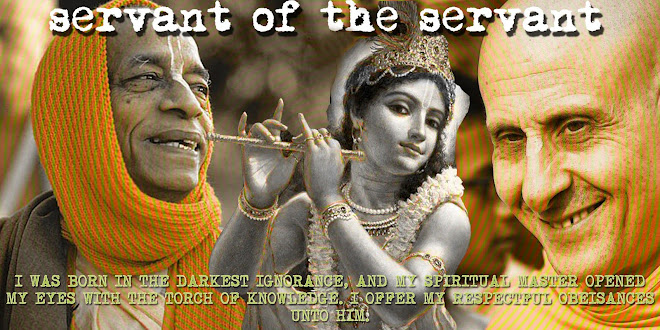The Bible and Koran although existing for the past 2000 and 1500 years respectively, have not been recognized as authoritative scriptures by the great acharyas like Sri Ramanuja and Madhwa. In fact, none of the saintly teachers give lot of credence to the Bible and Koran. A few of them have commented on some of its value, however, it is not accepted as a spiritual authority.
Bible and Koran was spoken for a different audience at a specific time and place. Following are, in my opinion, shortcomings that to me invalidate it as a scripture.
- God is anonymous - If a book is meant to be the word of God, then the least the reader should be aware of is the identity of God? In fact, even the name of God is not properly revealed. There are suggestions, certainly, but the name, form, and pastimes of God is anonymous.
- The early reciters are anonymous - The Bible and Koran was transferred from one generation to next mainly through oral tradition. The stories were told and re-told to this day. However, we do not have documentation of the identity and qualification of the story tellers. In the Bhagavad Gita, the speaker is very clear and later on, through the chain of disciplic succession from Maha muni Vyasa, the speakers are clear and their qualifications known. The same cannot be said of the Bible or Koram.
- The authors are anonymous - The Bible and Koran were heard and written by scholars of unknown origin. The old testament, however, especially the first five books called the Torah were written by Moses and the later books were written by some known people. However, as for the New Testament, the stories in the Gospel, the authors are under question. Luke, Mark, Mathew and John are said to be the disciples of Jesus but this is not universally accepted by all. Anyways, the issue of authorship of the Gospels is a deeper subject and is beyond my knowledge but the bottom line is that the identity and qualification of the authors of the Gospels is not revealed. The there are letters by St. Paul but these are not direct words of God. Similarly, the Koran originally was written by members in the audience Prophet Mohammed was speaking but as for their identity, it is not known.
So with God, the reciters and authors being anonymous, it is difficult to consider these books in par with books like Bhagavad Gita and or Srimad Bhagavatam. Approximately 60% of the world population read either the Bible and or Koran and we respect the book and the people who consider it sacred. But in my opinion and under stringent scrutiny, the Bible and Koran are books on ethics and human morality but cannot be taken as a book about the form, nature and pastimes of God!
Hare Krishna
